- Home
- Daphne Du Maurier
Hungry Hill
Hungry Hill Read online
Hungry Hill
Daphne Du Maurier
Hungry Hill is a passionate story of five generations of an Irish family and the copper mine on Hungry Hill. Their fortunes and fates were closely bound with this copper mine, and the tale is told with all the magic and excitement that Daphne du Maurier never fails to command.
Daphne du Maurier
Hungry Hill
BOOK ONE
Copper John, 1820–1828
On the third of march, 1820, John Brodrick set out from Andriff to Doonhaven, intending to cover the fifteen miles of his journey before nightfall. It was typical south-westerly weather, the clouds travelling low, and the soft, blustering wind bringing scattered showers that fell heavy for five minutes and then passed, leaving a space of blue no larger than a man's fist in the sky, with a glimpse of a sun that promised nothing.
The road in those days was rough and uneven, and John Brodrick, swinging from side to side in the chaise, called to the post-boy to have a care, unless he wished to break the bones of the pair of them and land in the ditch for the night, with no supper into the bargain.
There was constant talk of a new road being built, but there the matter ended, like everything else in the country, and never a penny would come from the Government for the improvement of the roads. The expense in the long run would fall upon himself and the other landlords. The trouble was that none of the others had energy enough to put their hands in their pockets, and if they were prevailed upon to do so would oblige with so ill a grace, and with such a pother of words about the hardness of the times, the arrears of rent, and the slackness of their tenants, that it would save time and temper to leave the matter alone, and let the road become little better than the bogs around Kileen.
However, the elections were pending soon in Slane, and if Hare wished to hold his seat, which no doubt he did, John Brodrick would put it to him pretty forcibly that votes were not given for nothing, and certainly not for Ministers to sit in London twiddling their thumbs and neglecting their own country.
How few men of enterprise there were, when all was said and done. It was not a question of conceit, but he could think of no other man but himself who would have achieved what had just been done that day in Andriff, and who would have had the vision in the first place to know that such an undertaking was possible.
Too risky, old Robert Lumley had said in the beginning, shaking his head and bringing up objection after objection-how they would never get a return for their money, and would all be beggared, and be forced to sell their land.
"Risk?" John Brodrick had answered him.
"Why, no doubt there is a risk, just as every day in every man's life he risks breaking his neck when he steps outside his door. I grant you the expense in sinking the mine will not be trifling, machinery will be necessary, much labour will be required, and I admit freely that the land here is a different proposition from that of Cornwall, where they shovel and wheel out ore as fast as they can put it in a barrow, whereas we shall not be able to break an ounce without gunpowder. But the copper is there, ours for the taking. One of the most experienced directors of mines in Cornwall, a Mr. Taylor, has been over the ground with me this past week, and his opinion of the place is the same as my own. There is a fortune awaiting us, on my property, Mr. Lumley, and on yours. If you are agreeable to forming a private company under my direction- and mark you, according to the conditions I have just shown you, which my agent has drawn up, you can see well for yourself I shall be risking more than you-then I can promise you that within a few years your royalty will be more than a thousand pounds a year. If you would rather not be a party to the agreement, then there is no more to be said."
And he had risen from his seat, gathered his papers together, and made a signal to his agent that there was nothing further to discuss. He had got half-way across the room before Robert Lumley called him back.
"My dear Brodrick, there is no need to be hasty. There are naturally one or two points that require clarifying before I make my final decision."
And then they had sat down once again, and patiently gone over everything that had been gone into twenty times before, with old Lumley quibbling at his already gross percentage. At last the agreement had been signed, the papers sealed, hands shaken, and some refreshment taken in the old library at Castle Andriff, with John Brodrick impatient to be gone now that his object had been achieved, but forced to stay and exchange a few words with his host for common courtesy's sake.
"I shall hope," he said, "to see you at Clonmere whenever business brings you to Doonhaven.
My daughters will be delighted to welcome you, and my sons to give you some sport with your gun," and old Lumley, civil enough now he had won his point about his twenty per cent share in the future mine, replied with an invitation to the young Brodricks to shoot the hares and the pheasants at Duncroom whenever they had the wish.
And so John Brodrick called to the post-boy and climbed into the chaise, just as Lumley's son-in-law, Simon Flower, returned from hunting, his face and his boots bespattered with mud, his arm round the waist of his twelve-year-old daughter.
"Well," he asked, smiling all over his handsome, florid face, "and did you get the old gentleman to put his name to your piece of paper?"
"We have formed a company to work the copper mines at Hungry Hill, if that's what you mean," said John Brodrick drily.
"Did you now, and all in the space of a few hours?" returned the other. "And here have I been working away these fifteen years trying to get him to put a few slates on the roof of the castle, for I swear to you the rain blows in on my face as I lie in bed, but he won't allow me enough to get even the mortar mixed."
"There'll be money to spare in a year or two that will give you a new roof and an additional wing to your house if you want it," said Brodrick.
Simon Flower raised his eyes to heaven in mock humility.
"It's my conscience that will go against me," he declared, "and I tell you in solemn truth, my dear Brodrick, that if I think the copper is going to come out of the mountains by the sweated labour of young men and of children, why, I won't touch a penny of my father-in-law's money; I would rather the roof of my house fell in upon me."
John Brodrick looked out at the pair of them from his chaise: the smiling, careless Simon Flower, his contemporary, who had never done a stroke of honest work in his life and lived contentedly upon his wife's money; and the pretty, flushed child, with her slanting eyes, laughing in agreement with her father.
"You had better become a director of the company, Flower," he said. "It will mean long hours, you know, supervision of the work at the mines, keeping the fellows in order, taking ship to Bronsea every six months to the smelting works, keeping a check on accounts, and a dozen other things beside."
Simon Flower shook his head, and sighed.
"It's a pity," he said, "that the mines should be started at all. We are peaceful enough as we are.
Why do you want to have us all troubled and excited, and the people sweating, and the poor old hill broken into with explosives?"
John Brodrick settled himself in the chaise.
"I believe in progress, and giving employment to all the poor devils who find living next to impossible in this country, and making money to provide for my children, and my children's children, when I die," he said.
"Ah," said Simon Flower, "they won't thank you for it. All right, Brodrick, go and start your mines and make your fortune, and I'll sit back and reap some of the benefit." He smiled, and kissed his daughter on the top of her head. "Think of all the weary miners digging for our comfort," he laughed, and lifting his hat, he waved it gaily in farewell.
Typical, thought John Brodrick as he looked out across Mundy Bay comtypical of nearly every man in the
country. Irresponsible, indifferent, their heads full of nothing but dogs and horses; half the year spent on the Continent chasing the sun, and the rest in yawning on their own doorstep.
Despised by their tenants, their land a disgrace, and, to crown all, more than a trifle drunk at two o'clock in the afternoon.
He dismissed Simon Flower from his mind with little trouble, having a great contempt for people he did not understand, and, watching the long Atlantic rollers sweeping into Mundy Bay, he began to think about the ships that would presently bear the ore from the harbour at Doonhaven, round the coast and across the channel to Bronsea. The shipment would be the hardest part of the business, for the harbour dried out at low water, which would compel the vessels to take the ground, and in bad weather they might be weather-bound for several weeks at a time. He remembered how, when poor Sarah was alive, they had been, held up in Mundy for more than three weeks, on account of the weather, for the master would not risk his ship in the south-westerly gale even for a short distance, and the road was not fit. to travel, with Sarah in her condition, just before Jane was born.
No, the vessels would have to make fast time during the summer months, for the winter would necessarily be a slack period, and he thought with satisfaction of the two or three fine ships he had noticed lying alongside the wharfs in Slane a few weeks back (one of them newly launched, the paint on her barely dry), which might be purchased for a comparatively low figure if he went about it at the earliest possible moment, before the story of the new mining company was spread abroad. Owen Williams, of Bronsea, would keep his eyes open for likely vessels his side of the water. It was lucky he had already come to such an excellent agreement with the firm for the future handling of the ore and its distribution to the smelting companies.
He supposed he would be crossing to Bronsea with increasing frequency during the years to come, and he decided he would have to look out for some small property within easy reach of the port, for to stay in Bronsea itself would be impossible. It would make a change for the girls, too. Clonmere was lonely and cut off from all amenities-they were beginning to remark upon it now they were grown up, especially Eliza.
It was a different matter for the boys. Clonmere was a vacation to them after Eton and Oxford, but girls could not hunt hares on Doon Island or paddle the bogs after snipe.
The chaise was passing the little church of Ardmore, strange, lonely landmark by the sea, the farthest outpost of the scattered Doonhaven parish, and now the road rose and twisted to the foot of Hungry Hill.
John Brodrick called to the post-boy to stop.
"Wait for me a moment," he ordered. "I shall not delay you long."
He climbed a short way above the road, until the boy and the chaise were hidden, and after walking for five minutes or so he came upon the site of the future mine. He stood for a while looking about him, his hands behind his back. Curious to think that in a few months there would be shafts sunk, and chimneys built, and all the grim reality of industry, a road cut here where there was as yet no path, the lean-to sheds, the huts of the miners, the hum and whine of machinery.
Now the scrubby grass blew softly in the wind, and the sun, coming for an instant from behind a cloud, shone upon the lichened stone so soon to be blasted by gunpowder, and suddenly a snipe rose from the ground in front of him, twisting and darting in erratic flight.
John Brodrick looked upward, and above him stretched the great mass of Hungry Hill, wild and untrodden, the summit hidden in mist. He knew the hill in every mood, in every season. In winter* when cold and frost left Doonhaven untouched, there would be a cap of snow on the top of Hungry Hill, and the lake near the summit would have a thin sheet of ice upon the surface. He would see the white face of the hill from the grounds down at Clonmere. Then the gales and rain of February would come, hiding the hill in a curtain of driving mist, until one morning in early spring he would wake to a day of unbelievable brilliance and promise, the air full of that spongy softness, so tender and so beguiling, that belonged only to this country of his birth, and there would be Hungry Hill smiling under the blue sky, the mist dissolved, the gales forgotten, a continual temptation to forget the business of the day and the work of a conscientious landlord, an everlasting reminder that there were snipe to shoot, and hares to hunt, and fish hiding in the waters of the lake, and warm, rough grass where a man could fling his body and lie sleeping under the sun.
Yes, the heat of midsummer too, the silence and the peace, the hawks that hovered in the sky, the butterflies that skimmed the lake, and bathing in the lake as he remembered doing when he was a boy, the water cold and clean.
Now the hidden wealth of Hungry Hill would be revealed at last, her strength harnessed, her treasure given to the world, and her silence disturbed in the name of progress. The forces of Nature, thought John Brodrick, must be made to work for Man, and one day, this country, so poor and so long neglected, will take her rightful place amongst the rich nations of the world. Not in his time, nor in his sons' time, but maybe in little more than a hundred years it would be possible.
Another cloud came across the sun, a spot of rain fell upon his head, and John Brodrick turned his back upon Hungry Hill and went down to the road below.
When he reached the post-chaise, he saw a man standing in the road, waiting for him. He was tall and bent, and leant heavily upon a stick, a man of about sixty years of age, whose light blue eyes made a strange contrast to the mahogany of his face. He smiled when he saw John Brodrick, a smile that had little welcome in it and no pleasure, but appeared to be caused by some secret mirth of his own.
John Brodrick nodded to him curtly.
"Good afternoon, Donovan," he said. "You seem to be a long way from home with that bad leg of yours."
"Good-day, Mr. Brodrick," returned the other. "As to my leg, he's used to tramping the hills and the roads, and serves me well enough. And how did you find the site for the new mine looking?"
"What do you know of a new mine, Donovan?"
"Maybe the fairies told me about it," answered the man, still smiling, and scratching his white hair with the end of his stick.
"Well, there's no harm in anyone knowing now," said Brodrick. "Yes, there is to be a copper mine on Hungry Hill. I signed an agreement with Mr. Lumley of Duncroom this very day, and we intend to start proceedings very shortly."
The man named Donovan said nothing. He stared a moment at John Brodrick, and then turned his blue eyes away from him, upward, to the hill.
"You'll be having no great advantage from it," he said at length.
"That we propose to find out," said Brodrick shortly.
"Ah, I'm not talking about the fortune you'll make," said the other, waving his hand in contempt. "The copper will do that for you, aye, and for your sons and your grandsons too, while me and mine grow poorer on the bit of land left to us. I'm thinking of the trouble it will bring you."
"I think we can take good care of that."
"You should have asked permission of the hill first, Mr.
Brodrick." The old man pointed with his stick to the great mass of hill that towered above them. "Ah, you can laugh," he said, "you, with your Trinity education and your reading and your grand progressive ways, and your sons and your daughters that walk through Doonhaven as though the place was built for their convenience, but I tell you your mine will be in ruins, and your house destroyed, and your children forgotten and fallen maybe into disgrace, but this hill will be standing still to confound you."
John Brodrick ignored this flow of rhetoric, and climbed into the chaise.
"Perhaps," he said, "Mr. Morty Donovan would like to take shares in the copper mine, and then perhaps he would not show his dislike quite so plainly? I shall be paying good wages to the men employed in the mine. If your sons feel like doing some honest work for a change I shall be delighted to employ them."
The old man spat on the ground in contempt.
"My sons have never worked for a master," he said, "and never shall do while I li
ve. Doesn't all the land here belong to them by rights, yes, and the copper too, and couldn't we take it all, if we had the mind?"
"My dear Donovan," said Brodrick impatiently, "you live in the past of two hundred years ago, and talk like an imbecile. If you want the copper why don't you form a company, and engage the labour, and erect the machinery?"
"You know well enough I am a poor man, Mr.
Brodrick; and whose fault is it but that of your grandfather?"
"I'm afraid I have no time to discuss those ancient quarrels, Donovan, which are better forgotten. Good evening to you." And John Brodrick gave a sign to the post-boy to drive on, leaving the old man leaning upon his stick, staring at them, the smile gone from his face.
John Brodrick looked out over the view below them, as the chaise topped the hill. Yonder, across the bay, lay the little harbour of Doonhaven, with Doon Island at the entrance to the bay, and beyond Doonhaven, at the head of the farther creek, stood his own grey castle of Clonmere, like a sentinel guarding the waters.
The chaise rattled down the hill into the town, and past the harbour, scattering the cattle and the geese in the market-place, nearly running over a dog which came barking at the wheels, and avoiding by a miracle a small, barefooted boy who was chasing a hen into a cottage, and so past the Post Office, and Murphy's shop, and up out of the village beyond the few cottages on the hill at Oakmount, to his own gate-house and the park. The gates were open, at which he frowned, for it was by such carelessness that his cattle had strayed last time to the moors, and were caught and kept by one of Morty Donovan's men, and branded with Morty Donovan's mark into the bargain, to add to the usual unpleasantness between the families, and he resolved to speak firmly to the widow Creevy at the gate-house on the first occasion, and to remind her that her position was one of trust, and if she neglected it he had other tenants who might fill it to greater advantage.

 Jamaica Inn
Jamaica Inn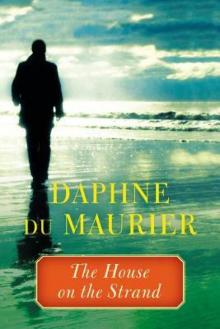 The House on the Strand
The House on the Strand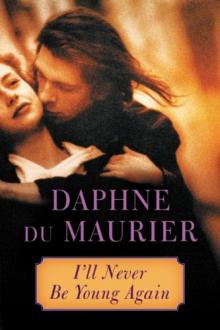 I'll Never Be Young Again
I'll Never Be Young Again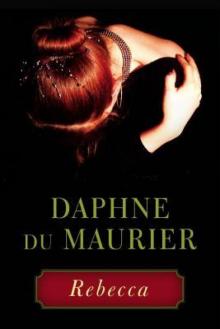 Rebecca
Rebecca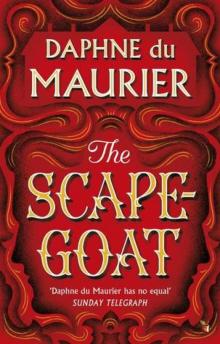 The Scapegoat
The Scapegoat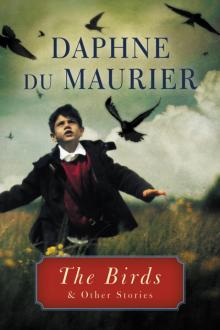 The Birds and Other Stories
The Birds and Other Stories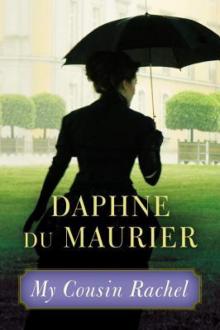 My Cousin Rachel
My Cousin Rachel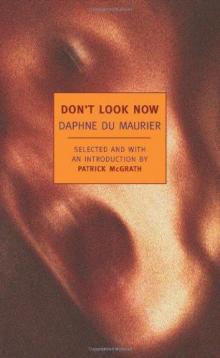 Don't Look Now
Don't Look Now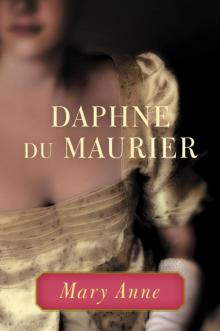 Mary Anne
Mary Anne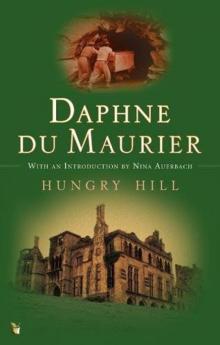 Hungry Hill
Hungry Hill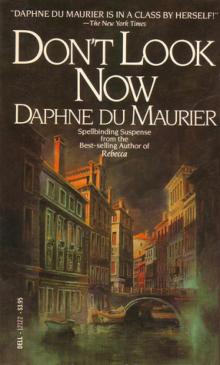 Don't Look Now and Other Stories
Don't Look Now and Other Stories The Loving Spirit
The Loving Spirit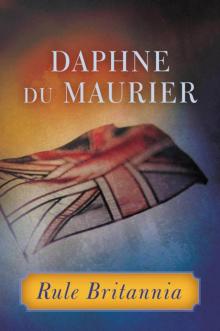 Rule Britannia
Rule Britannia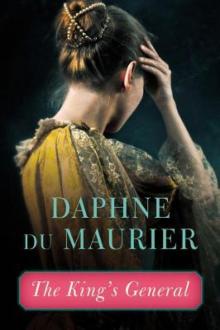 The King's General
The King's General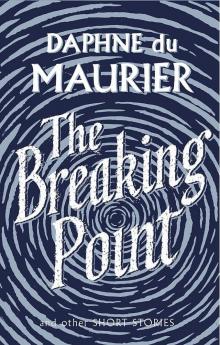 The Breaking Point: Short Stories
The Breaking Point: Short Stories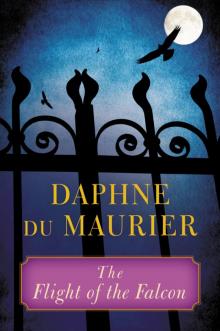 The Flight of the Falcon
The Flight of the Falcon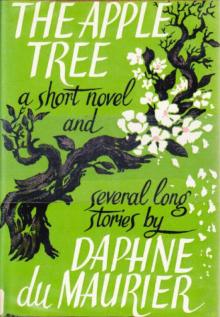 The Apple Tree: a short novel & several long stories
The Apple Tree: a short novel & several long stories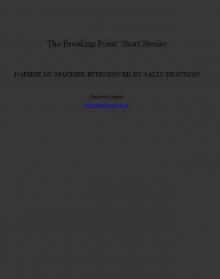 The Breaking Point
The Breaking Point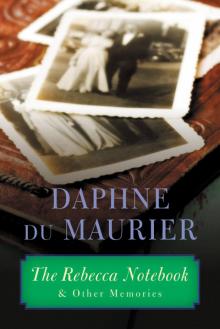 The Rebecca Notebook
The Rebecca Notebook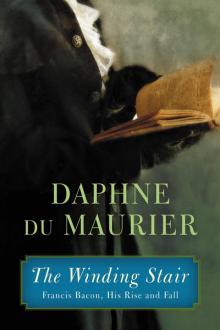 The Winding Stair: Francis Bacon, His Rise and Fall
The Winding Stair: Francis Bacon, His Rise and Fall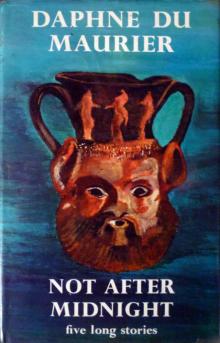 Not After Midnight & Other Stories
Not After Midnight & Other Stories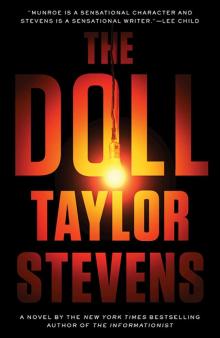 The Doll
The Doll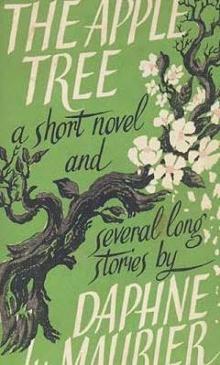 The Apple Tree
The Apple Tree